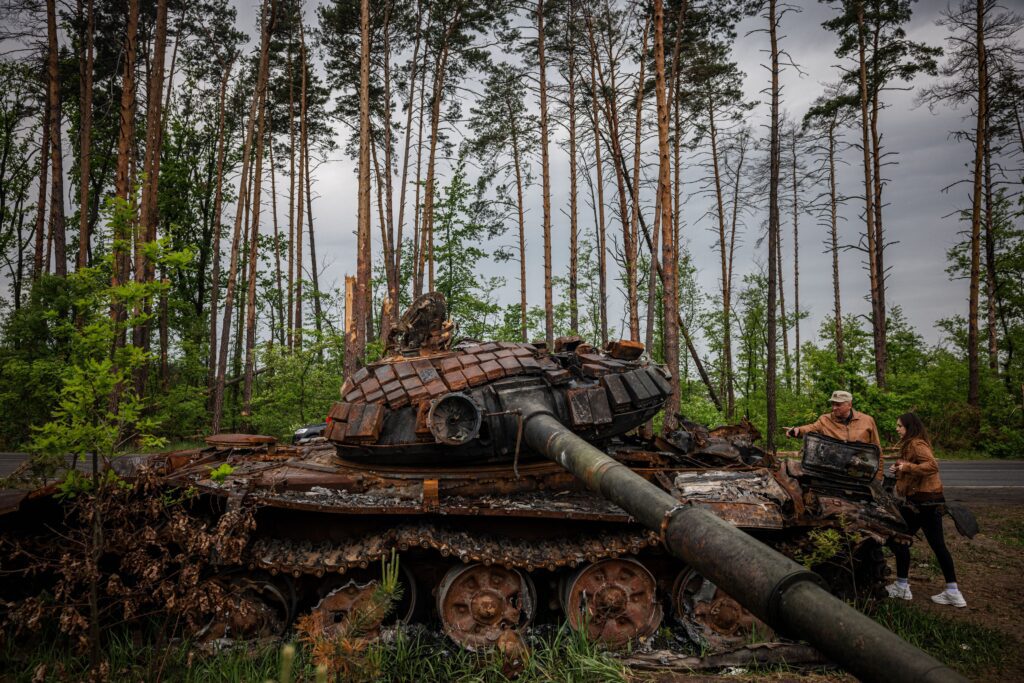This article explores the profound impact of nuclear weapons on modern warfare and global security. The development of these devastating weapons during World War II has changed the nature of warfare, with the introduction of total war where the very survival of nations is at stake. The concept of nuclear deterrence emerged during the Cold War, as countries recognized the potential for mutually assured destruction. International efforts such as the NPT and IAEA aim to limit the spread of nuclear weapons and ensure compliance with nuclear programs. The possession of nuclear weapons has also influenced regional stability and added complexity to geopolitical dynamics. Additionally, the threat of nuclear terrorism is a significant concern, requiring international cooperation to prevent its proliferation. The continued presence of nuclear weapons poses risks, emphasizing the importance of disarmament, diplomacy, and international cooperation.
The Impact of Nuclear Weapons on Modern Warfare and Global Security
Introduction
Nuclear weapons have had a profound impact on modern warfare and global security since their development during World War II. These devastating weapons have the potential to cause widespread destruction and loss of life on an unprecedented scale. Their existence has shaped military strategies, altered the balance of power between nations, and raised concerns about the safety and stability of the international community. This article examines the impact of nuclear weapons on both modern warfare and global security.
1. Changing Nature of Warfare
Nuclear weapons have fundamentally changed the nature of warfare. Traditionally, wars were fought with conventional weapons, such as guns, tanks, and missiles. However, the introduction of nuclear weapons has brought about the concept of total war, in which the very survival of nations is at stake. The destructive power of these weapons has made countries more reluctant to engage in direct military conflicts, as the consequences would be catastrophic. This has led to the development of new military strategies focused on deterrence and diplomacy.
2. Nuclear Deterrence
The concept of nuclear deterrence emerged during the Cold War between the United States and the Soviet Union. Both countries recognized that the possession of nuclear weapons could deter potential adversaries from attacking, as the consequences of a nuclear exchange would be mutually assured destruction. This concept led to an arms race, with nations stockpiling nuclear weapons as a means to maintain their security and influence. Nuclear deterrence has served as a means to prevent large-scale conflicts between major powers, but it also poses significant risks if a miscalculation or misunderstanding occurs.
3. Arms Control and Non-Proliferation
The existence of nuclear weapons has led to international efforts aimed at limiting their spread. The Treaty on the Non-Proliferation of Nuclear Weapons (NPT), signed by many nations, seeks to prevent the proliferation of nuclear weapons and promote disarmament. It has been successful in limiting the number of nuclear-armed states, but concerns remain about countries pursuing nuclear weapons outside of the NPT framework. The International Atomic Energy Agency (IAEA) plays a crucial role in monitoring and verifying compliance with nuclear programs, ensuring that nuclear weapons do not fall into the wrong hands.
4. Regional Stability
Nuclear weapons have influenced regional stability. The possession of nuclear weapons by certain countries, such as India and Pakistan, has created a delicate balance of power and deterrence in South Asia. The potential for a nuclear conflict in this region adds complexity to geopolitical dynamics and increases the urgency for diplomatic solutions. Additionally, the presence of nuclear weapons in the Korean Peninsula has heightened tensions between North Korea and the international community, prompting diplomatic efforts to prevent further escalation.
5. Threat of Terrorism
The threat of nuclear terrorism is a significant concern in the global security landscape. The potential for non-state actors to acquire or develop nuclear weapons poses a grave risk to international security. Efforts must be made to secure nuclear materials, strengthen border controls, and improve intelligence sharing to mitigate this threat. International cooperation and collaboration are essential for preventing the proliferation of nuclear weapons to terrorist organizations.
Conclusion
The impact of nuclear weapons on modern warfare and global security cannot be overlooked. Their existence has altered the nature of warfare, leading to the dominance of deterrence strategies and the avoidance of direct military confrontations between major powers. Arms control and non-proliferation efforts have been necessary to prevent the spread of nuclear weapons and maintain regional stability. However, the continued presence of these weapons poses significant risks, including the potential for miscalculation, terrorism, and the erosion of global security. Therefore, fostering international cooperation, promoting disarmament, and finding diplomatic solutions to conflicts are crucial for a safer world.
